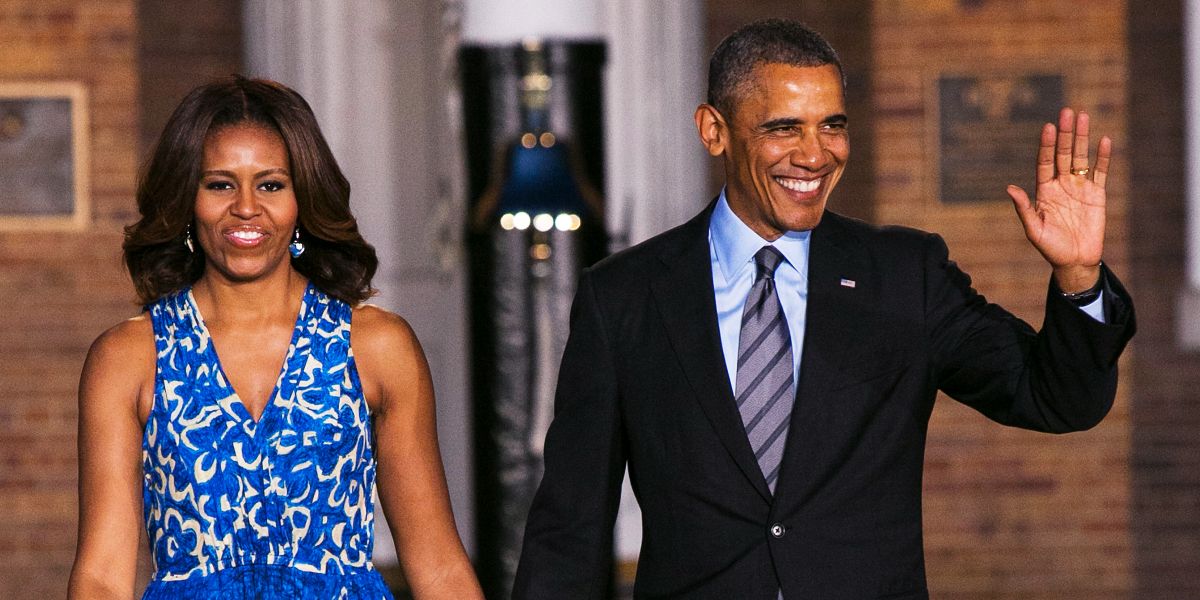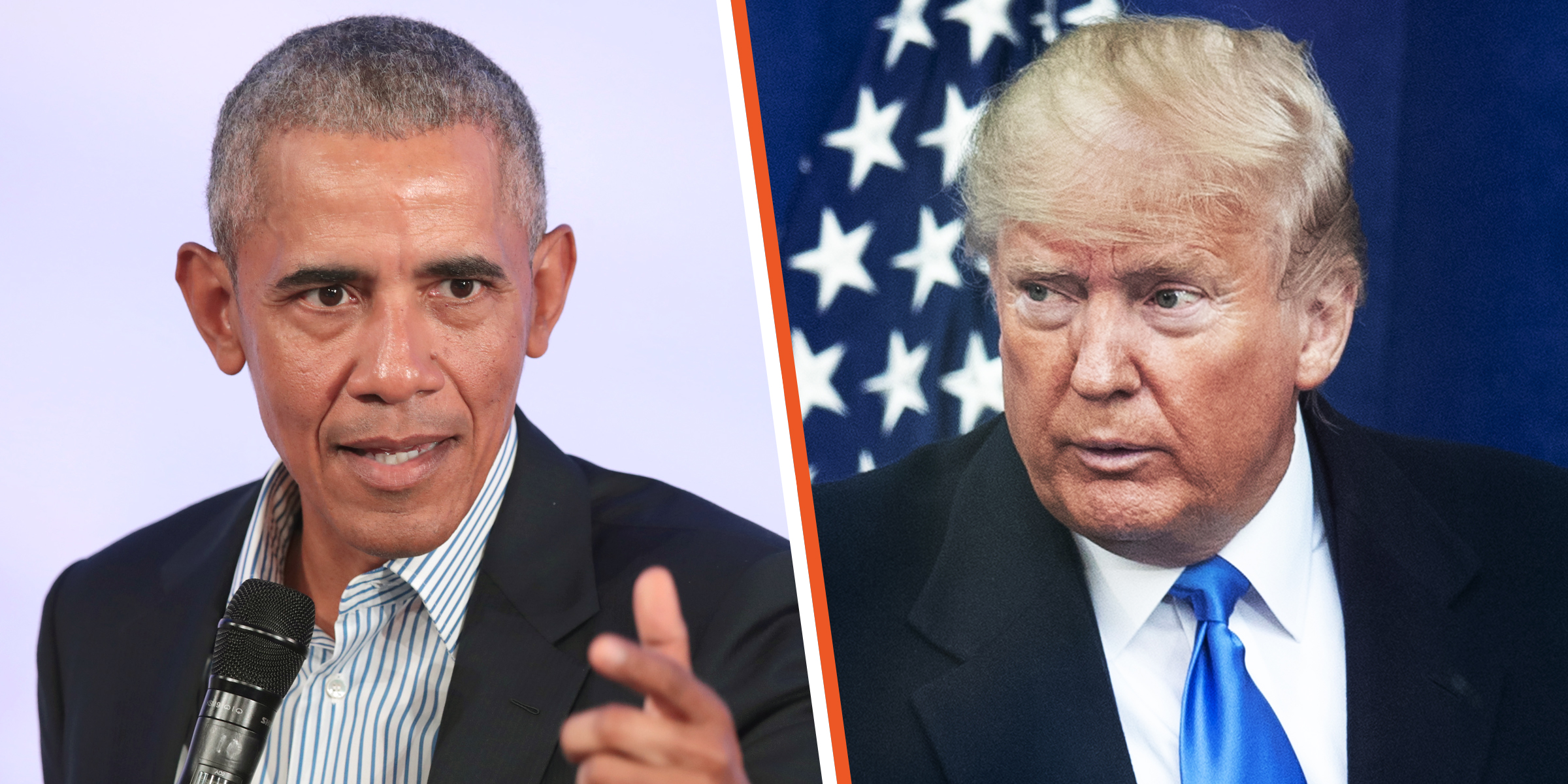
Barack Obama Responds to Trump Administration’s Decision Concerning Harvard University – Details
The Harvard Law School alumnus has been vocal in urging universities not to give in to what he has described as intimidation.
Former President Barack Obama commended Harvard University for standing its ground amid pressure from President Donald Trump’s administration, which has called for a funding freeze over what it claims is the school’s inadequate response to antisemitism and other integral issues.
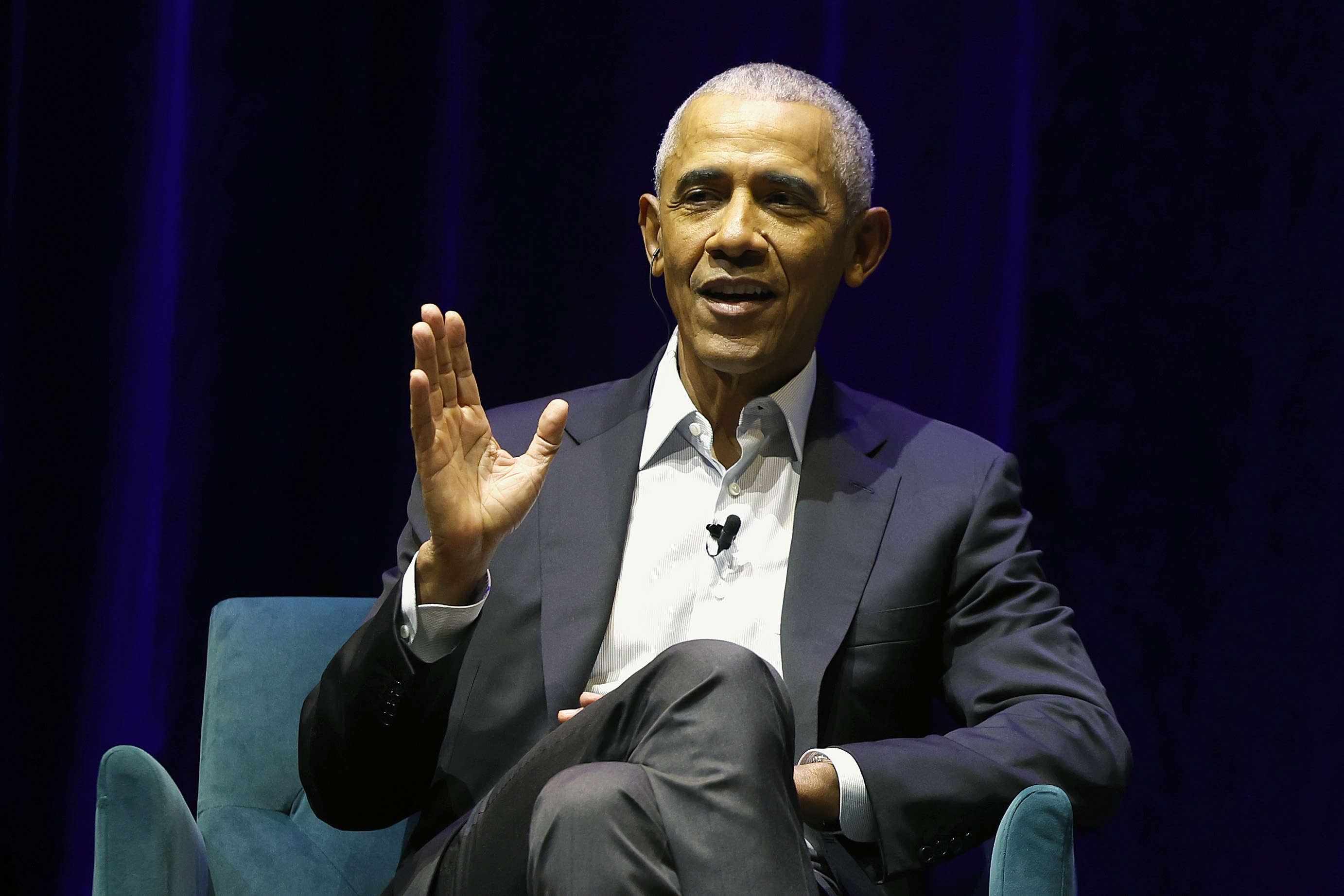
Barack Obama participates in a book talk with former German Chancellor Angela Merkel at The Anthem in Washington, DC, on December 2, 2024 | Source: Getty Images
In a statement shared on X, Obama
praised
the university, saying, “Harvard has set an example for other higher-ed institutions – rejecting an unlawful and ham-handed attempt to stifle academic freedom, while taking concrete steps to make sure all students at Harvard can benefit from an environment of intellectual inquiry, rigorous debate and mutual respect.”
He further expressed hope that other institutions would follow Harvard’s lead.
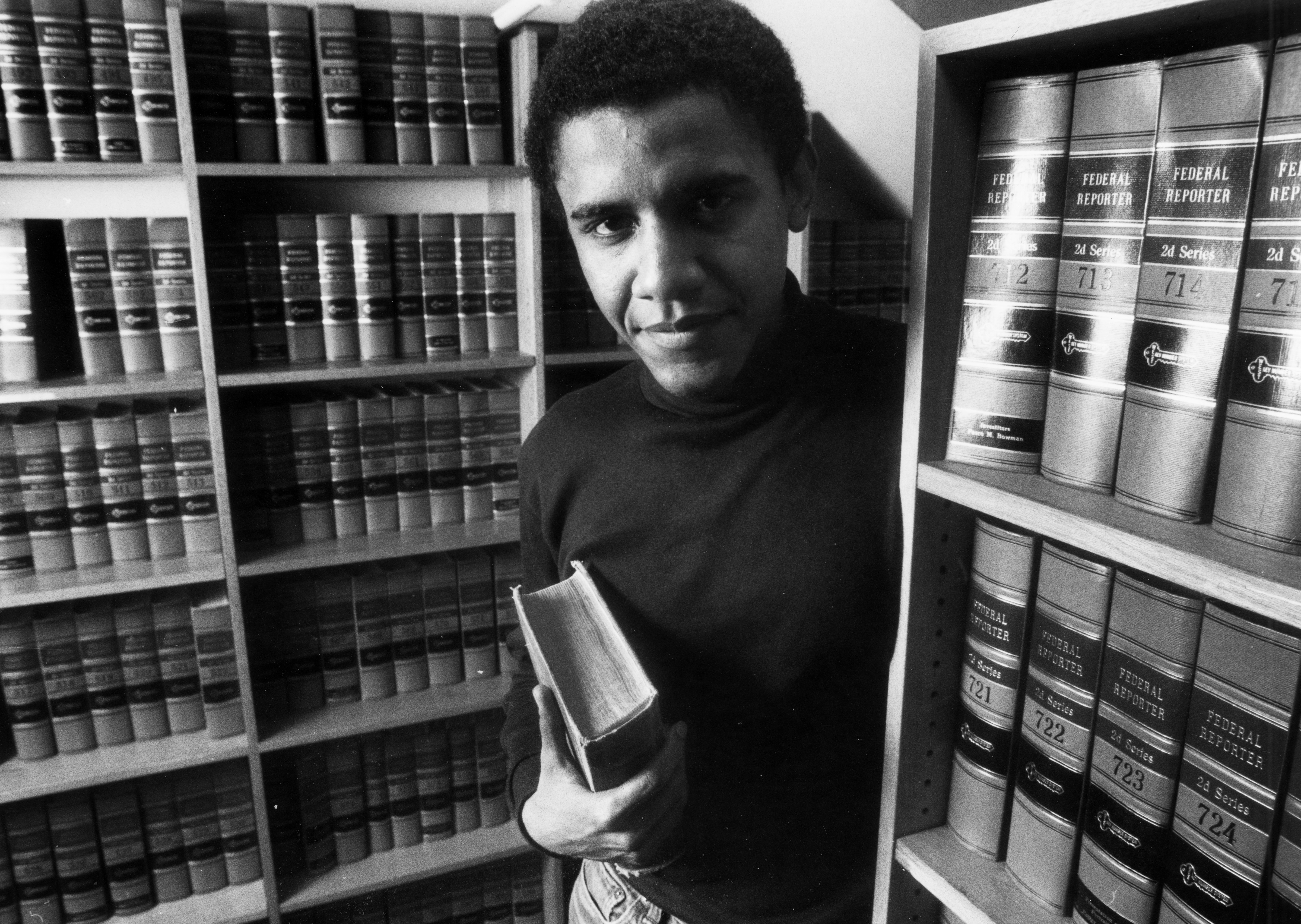
Barack Obama poses in the office of The Harvard Law Review after being named President of The Harvard Law Review, on February 5, 1990 | Source: Getty Images
Barack Obama’s
remarks came after Harvard said on Monday, April 14, that it was refusing to comply with a series of demands from the Trump administration.
The
letter of demands
sent by Trump’s administration stated that Harvard had, in recent years, failed to uphold both the intellectual and civil rights standards that justify federal investment.
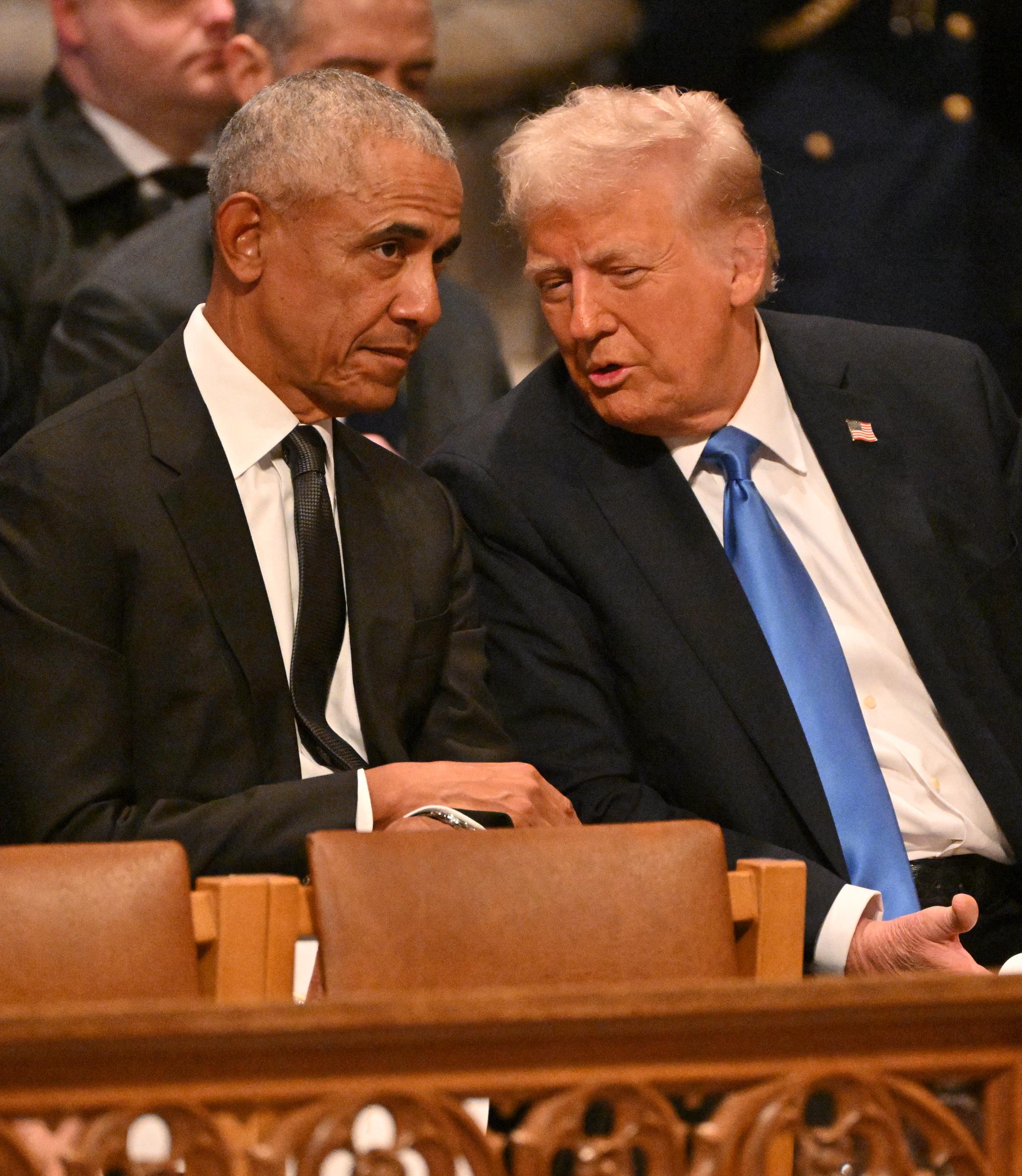
Donald Trump speaking with Barack Obama at the State Funeral Service for former U.S. President Jimmy Carter at the Washington National Cathedral in Washington, D.C., on January 9, 2025 | Source: Getty Images
The letter further noted that if the demands were acceptable to Harvard, the document would serve as an agreement in principle. From there, both parties would be expected to work in good faith to turn it into a more detailed and binding settlement agreement.
The letter set out a series of
sweeping reforms
the university would be required to implement. First, by August 2025, Harvard must restructure its leadership to ensure clear authority, empower scholarly leaders, reduce student and activist influence, and eliminate governance inefficiencies.
The university is also expected to adopt race- and identity-neutral hiring practices, strictly enforce plagiarism rules, and permit the federal government to audit personnel changes and hiring data through 2028.
Admissions must be reformed to be
solely merit-based
, eliminating identity-based preferences, with data shared for federal audits and deans required to certify compliance after each admissions cycle.
Additionally, international applicants must be screened for hostility to U.S. values, with misconduct reported to federal authorities, and reforms made visible and auditable by August 2025.
Harvard must also ensure
ideological diversity
in admissions and hiring by auditing departments, adjusting personnel to balance viewpoints, and eliminating ideological criteria, subject to annual reviews through 2028.
Trump’s administration also wants programs accused of antisemitism or ideological bias to undergo external audits, with faculty held accountable and follow-ups conducted yearly.
Another demand is that all Diversity, Equity, and Inclusion (DEI)-related initiatives
must be dismantled
immediately, with the university proving the reforms are lasting through structural and personnel changes.
Discipline policies for students must become transparent and consistent, student groups held accountable, support for those linked to
antisemitic activity cut off
, mask-wearing banned, and past misconduct addressed.
Trump’s administration also wants whistleblower protections to be introduced, ensuring safe channels for reporting reform violations without fear of retaliation.
Finally, Harvard must submit quarterly certified progress reports, allow audits of foreign funding, and maintain full transparency with federal regulators through at least 2028.
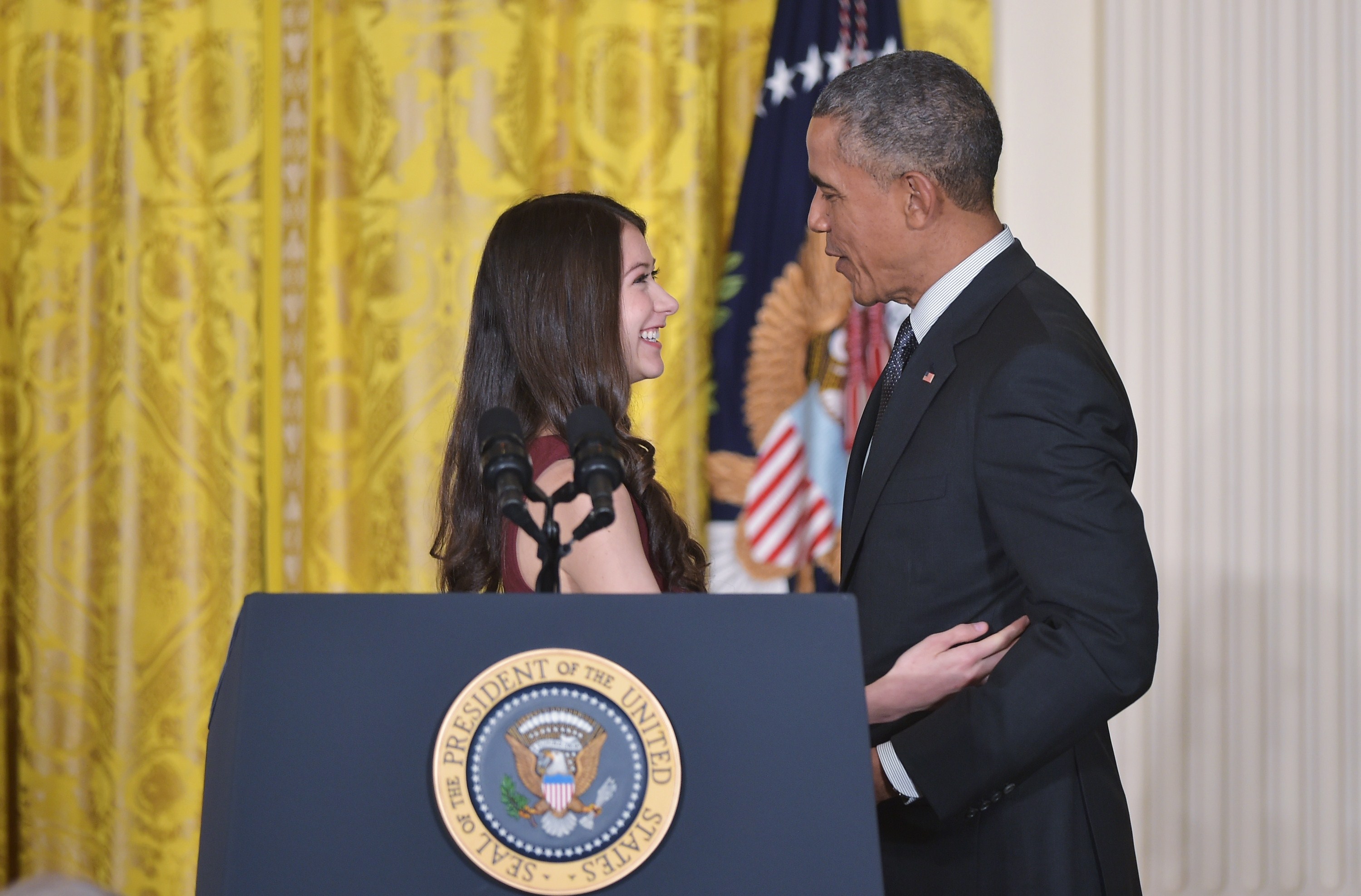
Harvard University student Elana Simon hugs Barack Obama after introducing him before he spoke on investments in precision medicine in the White House on January 30, 2015 in Washington, D.C. | Source: Getty Images
In a statement shared on the institution’s official website, Harvard President Alan Garber said the university had informed the federal government, through
legal counsel
, that it
would not agree
to these terms set out by Trump’s administration.
He maintained that the proposed requirements overstepped the federal government’s authority and infringed on the university’s constitutional freedoms, particularly its First Amendment rights.
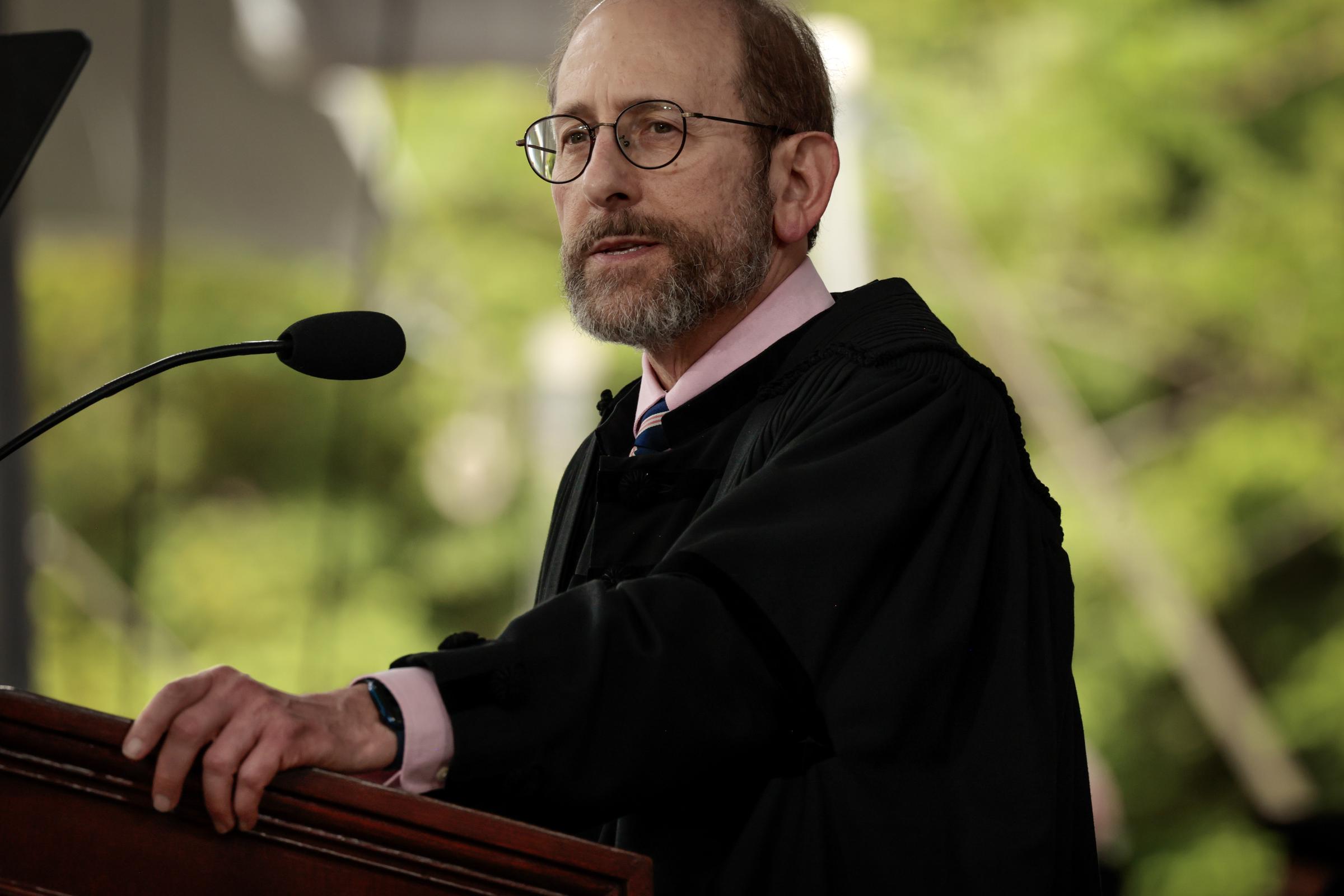
Alan Garber addresses the crowd during the 373rd Commencement at Harvard University, on May 23, 2024 | Source: Getty Images
“No government—regardless of which party is in power—should dictate what private universities can teach, whom they can admit and hire, and which areas of study and inquiry they can pursue,” Garber
noted
.
Additionally, Garber emphasized that the administration’s approach went beyond the scope of Title VI of the Civil Rights Act, which prohibits discrimination on the basis of race, color, or national origin in federally funded programs.
The university president argued that the demands exceeded
the statutory limits
of Title VI, which was never intended to infringe upon the university’s academic freedoms or its right to independently manage its educational practices.
While underscoring Harvard’s commitment to combat antisemitism, Garber also acknowledged the value of federal funding in supporting critical research.
He noted that pulling these resources would jeopardize ongoing studies into diseases like Alzheimer’s, Parkinson’s, and diabetes. These are efforts that impact not only public health but also national economic stability.
Garber added that the university has already taken concrete steps to
address antisemitism
and reaffirmed its dedication to fostering a safe and respectful campus environment.
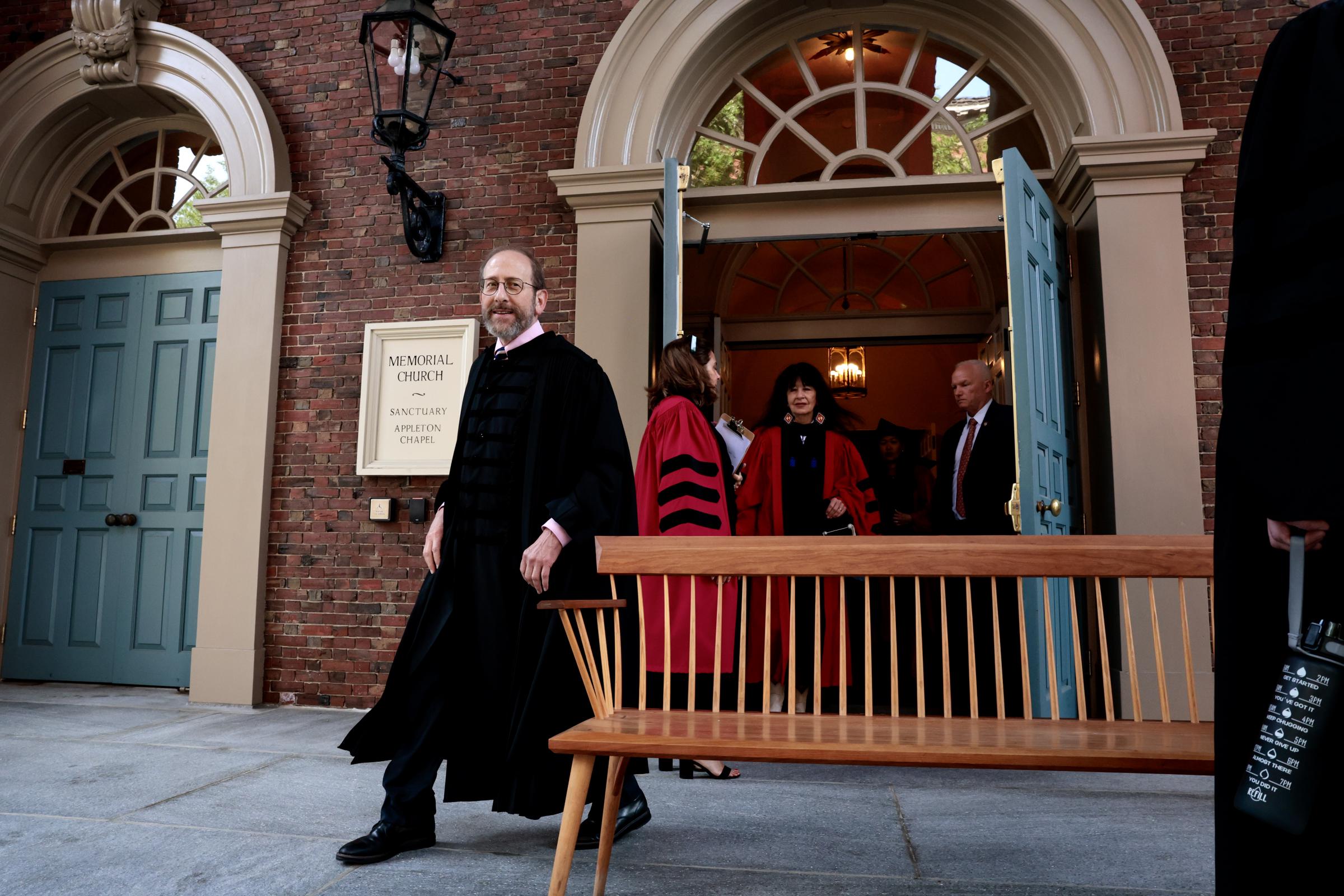
Alan Garber during the 373rd Commencement at Harvard University, on May 23, 2024 | Source: Getty Images
Garber’s position is echoed in the letter sent by Harvard’s legal counsel in response to the Trump administration’s demands.
The letter highlighted
various initiatives
Harvard has implemented to combat antisemitism, including changes to campus usage policies, the introduction of new accountability procedures, and the imposition of meaningful disciplinary actions for policy violations.
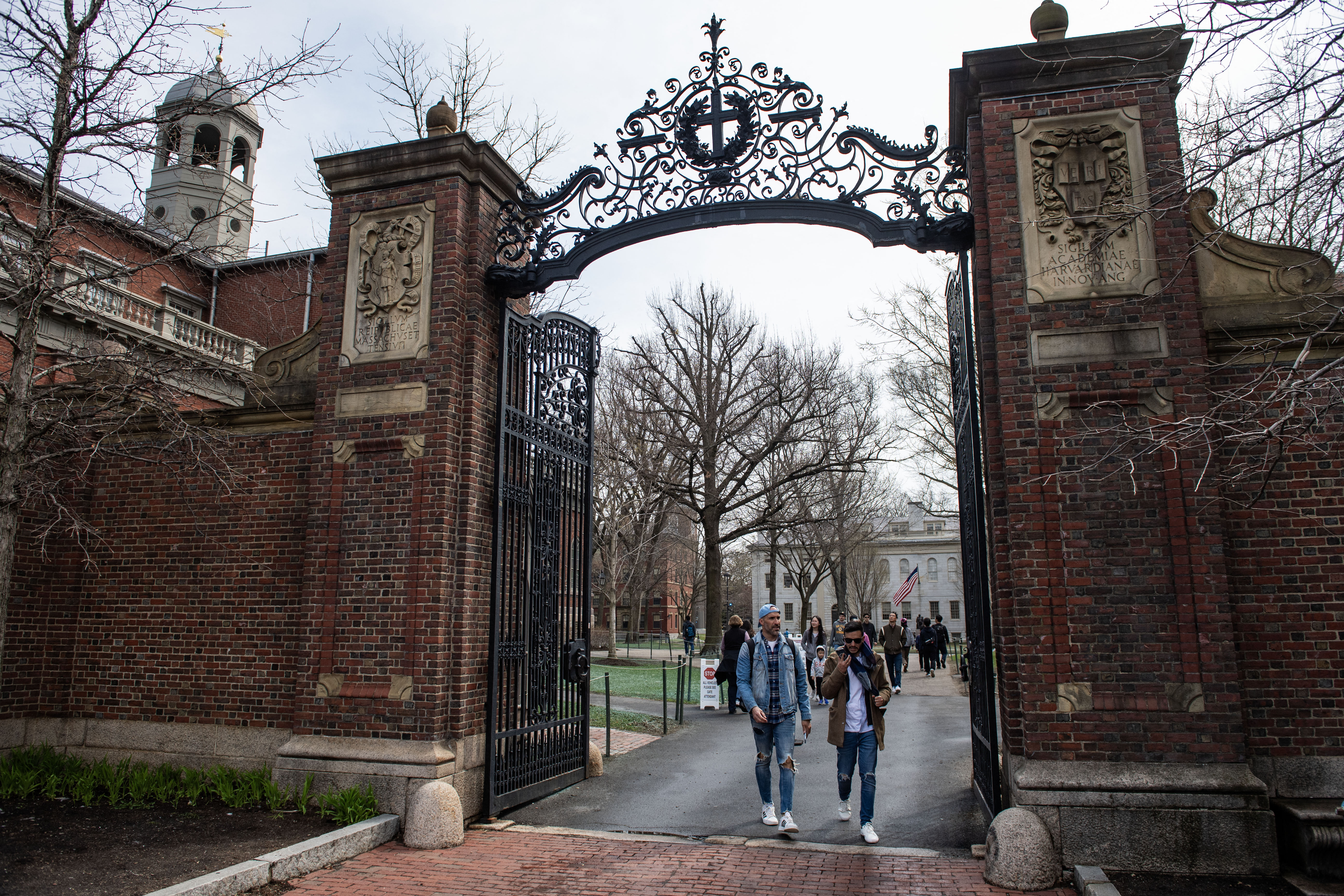
People walk through a gate as they exit Harvard Yard on the campus of Harvard University in Cambridge, Massachussetts, on April 15, 2025 | Source: Getty Images
Additionally, the university has bolstered programs aimed at addressing bias, promoting ideological diversity, and fostering civil discourse. Harvard also increased staffing to support these efforts, formed new partnerships, and allocated resources to combat hate and bias while enhancing security measures.
The letter emphasized that Harvard is in a
much stronger position
now compared to a year ago, despite the Trump administration’s disregard for these proactive measures.
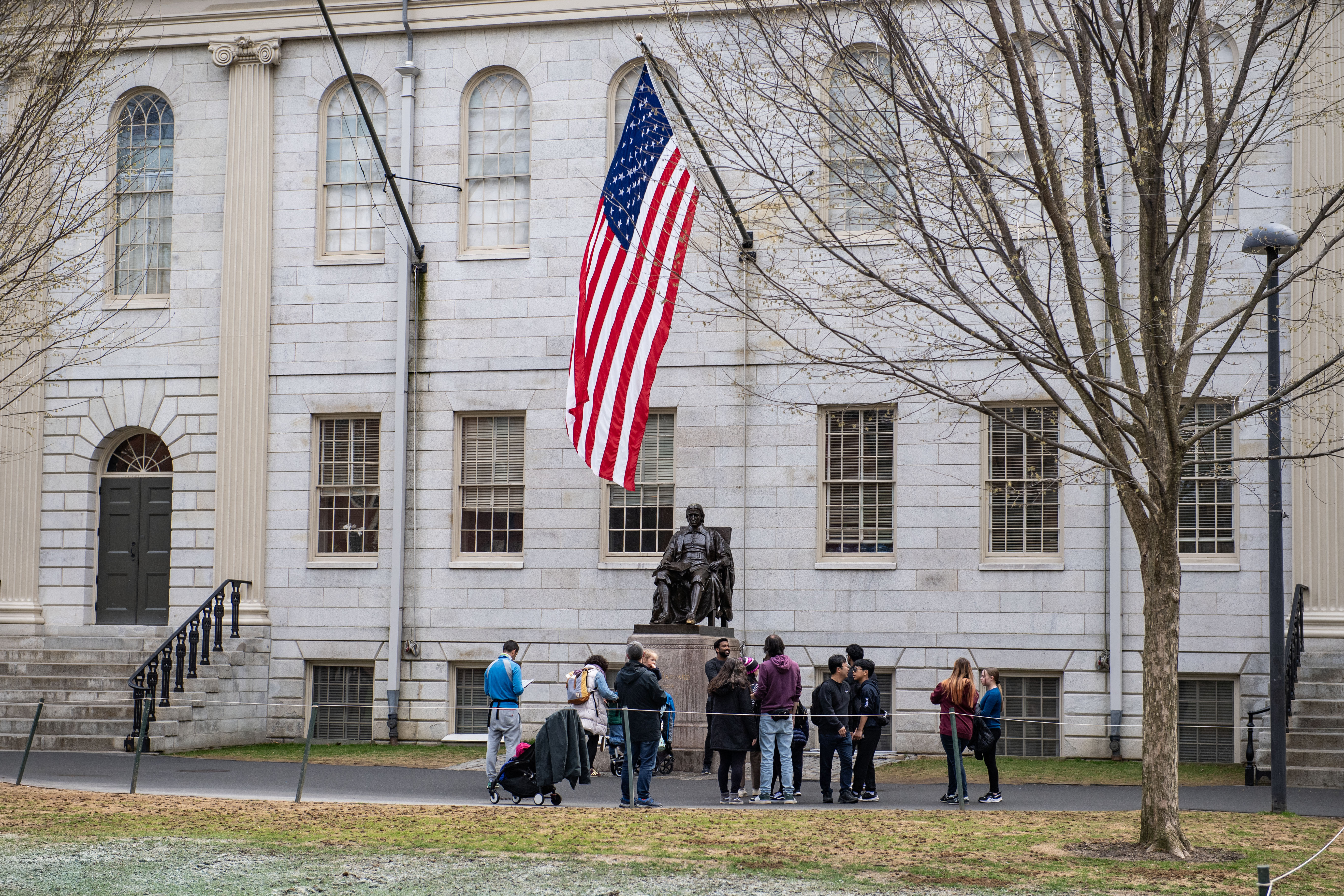
People gather around the John Harvard Statue in the Harvard University campus in Cambridge, Massachussetts, on April 15, 2025 | Source: Getty Images
The university expressed its openness to further dialogue about its actions and plans to continue improving the campus experience for all members of the community.
However, it
emphasized
, “The university will not surrender its independence or relinquish its constitutional rights. Neither Harvard nor any other private university can allow itself to be taken over by the federal government. Accordingly, Harvard will not accept the government’s terms as an agreement in principle.”
In response to Harvard’s decision,
Donald Trump
suggested the university be stripped of its tax-exempt status, arguing that it was behaving like a political entity.
He claimed its actions were ideologically driven and accused the institution of supporting what he
described
as “terrorist inspired/supporting ‘Sickness.'” Trump reminded the institution that tax exemption is contingent on acting in the public interest.
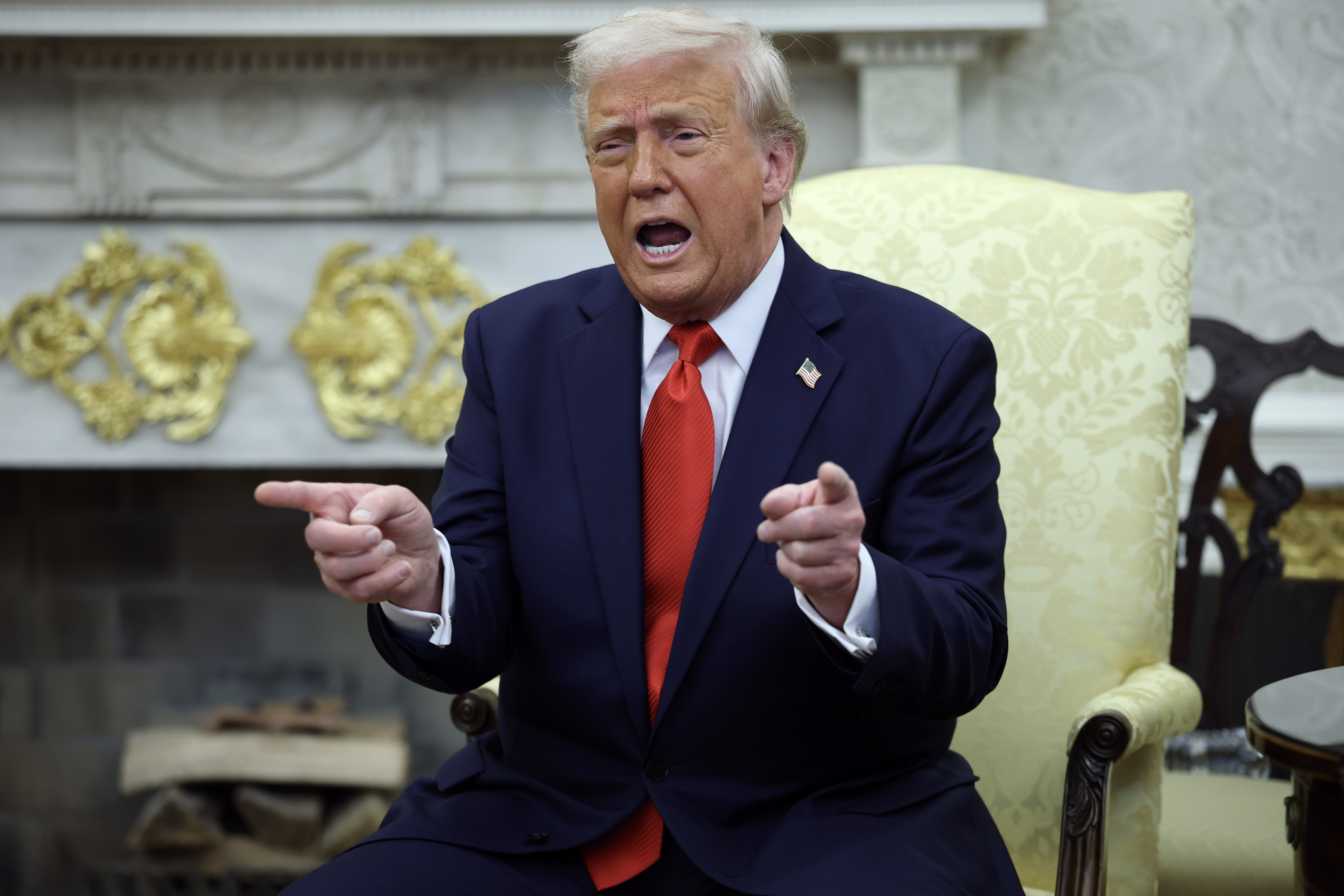
Donald Trump gestures as he meets with President Nayib Bukele of El Salvador in the Oval Office of the White House in Washington, D.C., on April 14, 2025 | Source: Getty Images
The Joint Task Force to Combat Anti-Semitism, established under Trump’s administration, also responded to Harvard’s stance with a sharp rebuke. It criticized what it
described
as a “troubling entitlement mindset” among elite academic institutions.
The task force argued that federal funding requires a firm commitment to upholding civil rights laws and called out universities for what it sees as a failure to adequately address antisemitism and campus disruptions.
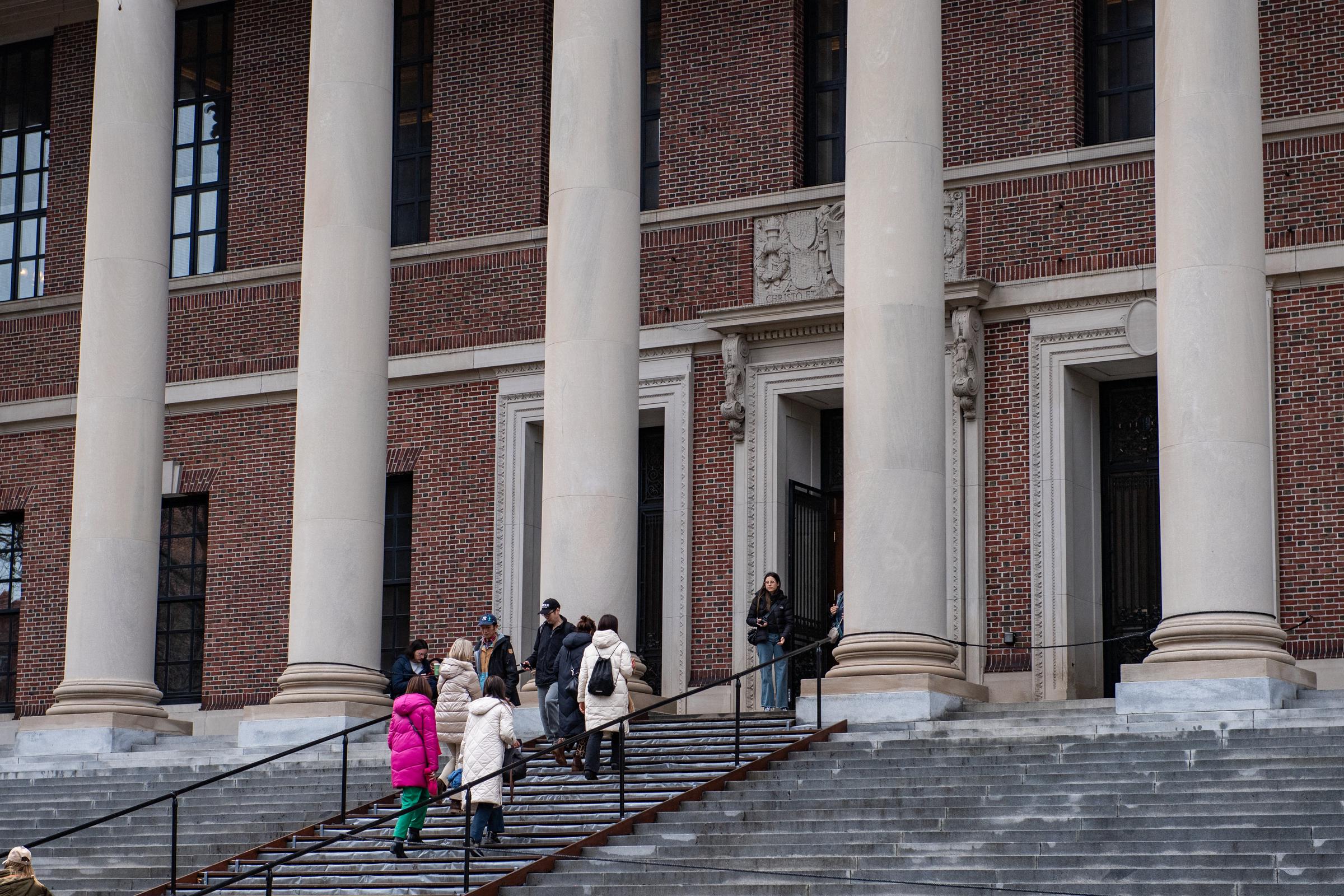
People enter and exit the Harry Elkins Widener Memorial Library on the Harvard University campus in Cambridge, Massachussetts, on April 15, 2025 | Source: Getty Images
They
announced
in the statement, “A freeze on $2.2 billion in multi-year grants and $60M in multi-year contract value to Harvard University.”
With retaliation and threats already surfacing in response to Harvard’s hesitation to accept the demands, many are beginning to question how long the university can hold its ground against the Trump administration’s pressure.

